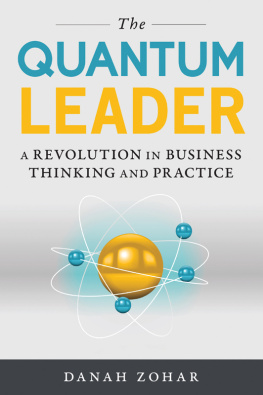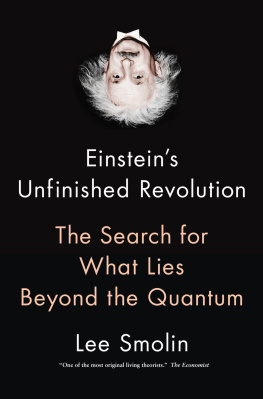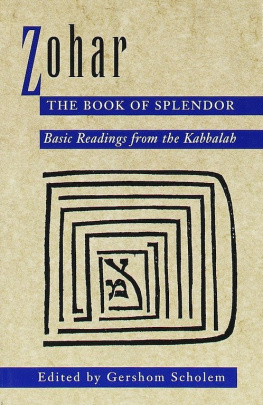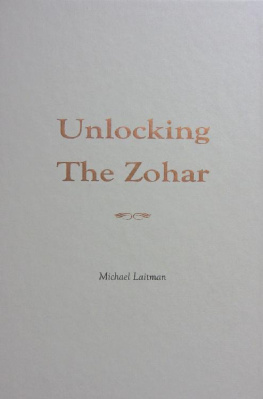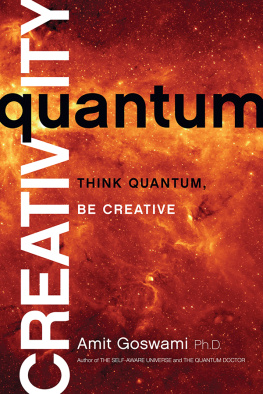My greatest thanks for help with this book go to my colleague Chris Wray, with whom I have engaged in creative dialogue throughout. Chris and I continue to work together as we evolve our thinking about Quantum Systems Dynamics, and Chris travels globally with me to deliver workshops on quantum management. I would also like to thank Stephen Meng and Professor Kai Sung for their help in getting me to know China and for introducing me to Chinese companies and business schools. I am grateful to the strategy department of the Haier Group in Qingdao for arranging my valuable visit to their company, and to the Center for Confucian Entrepreneurs and East Asian Civilizations at Zhejiang University in Hangzhou for the interest staff there (especially Professor Zhou) have taken in my work. I would also like to thank Chen Feng of the Tian Jian Water Company in Hangzhou for his hospitality and for making his company available to me for research purposes.
Aerts, D. et al. A Case for Applying an Abstracted Quantum Formalism to Cognition. Mind in Interaction. Edited by R. Campbell and John Benjamins.
Bohm, David. A New Theory of the Relationship of Mind and Matter. Philosophical Psychology 3, no. 2 (1990): 27186.
. On Dialogue. London: Routledge, 1995.
. Unfolding Meaning. London and New York: ARK Paperbacks, 1985.
Carse, James. Finite & Infinite Games. New York: Ballantine Books, 1986.
Cattell, Raymond B. Personality and Motivation Structure and Measurement. New York: World Book Company, 1957.
Chakrabarti, Mohit. Swami Vivekananda: Excellence in Education. Delhi: Kalpaz, 2008.
Collins, James C. Level 5 Leadership. Harvard Business Review (January 2001).
Descartes, Rene. Meditations. New York: Bobbs-Merrill, 1960.
Eswaran, Eknath, trans. The Bhagavad Gita. Canada: Nilgiri, Blue Mountain Center of Meditation.
Fei, Xiaotong. From the Soil. Berkeley: University of California Press, 1992.
Feng, Gia-Fu and Jane English, trans. Tao Te Ching. New York: Vintage Books, 1989.
Fine, Arthur. The Shaky Game: Einstein, Realism and the Quantum Theory. Chicago and London: University of Chicago Press, 1986.
Frankl, Viktor. Man's Search for Meaning. New York: Washington Square, 1959.
Freud, Sigmund. Civilization and Its Discontents. New York: Norton, 1962.
Goleman, Daniel. Emotional Intelligence. New York: Bantam Books, 1996.
Hawkins, David. Power vs. Force. Sydney: Hay House, 1995.
Hobsbawm, Eric. The Age of Extremes. London: Michael Joseph, 1994.
Isaacs, William. Dialogue. New York: Currency/Doubleday, 1999.
Joyce, James. Portrait of the Artist as a Young Man. New York: Viking, 1956.
Kahneman, Daniel. Thinking, Fast and Slow. New York: Allen Lane, 2011.
Kaku, Michio. Hyperspace: A Scientific Odyssey Through Parallel Universes, Time Warps, and the 10th Dimension. Oxford: Oxford University Press, 1994.
Kant, Immanuel. Groundwork for the Metaphysics of Morals. Translated by H. J. Paton. New York: Harper, 1948.
Kuhn, Thomas S. The Structure of Scientific Revolutions. Chicago: University of Chicago Press, 1970.
MacLeish, Archibald. Act Five. London: The Bodley Head, 1950.
McGilchrist, Iain. The Master and His Emissary. New Haven and London: Yale University Press, 2009.
Maslow, Abraham. Motivation and Personality. New York: Harper, 1970.
Micklethwait, John, and Adrian Wooldridge. The Witch Doctors. London: Heinemann, 1996.
Nietzsche, Friedrich. Thus Spoke Zarathustra. New York and London: Penguin, 1961.
O'Shaughnessy, Arthur William Edgar. Ode in The Oxford Book of Victorian Verse. Oxford: Clarendon press, 1925.
Pais, Abraham. Niels Bohr's Times: In Physics, Philosophy, and Polity. New York: Oxford University Press, 1994.
Pascale, Richard Tanner and Anthony G. Athos. The Art of Japanese Management. New York: Penguin Books, 1982.
Penrose, Roger. The Emperor's New Mind. Oxford: Oxford University Press, 1989.
Rilke, Rainer Marie. Rilke on Love and Other Difficulties. Translated by J. J. L. Mood. New York: Norton, 1975.
Soros, George. The Capitalist Threat. Atlantic (February 1997).
Tolle, Eckhart. The Power of Now. New York: New World Library, 1999.
Trompenaars, Fons. Riding the Waves of Culture. London: Nicolas Brealey, 1993.
Vedral, Vlatko. Living in a Quantum World. Scientific American (June 2011).
In late 2014, China Daily published a profile of Haier's CEO Zhang Ruimin titled A Chinese Business Model For the Internet Age. The profile highlighted Haier's radical management approach, company culture, and corporate structure. It stressed Haier's flatted, entrepreneurial platform structure, its borderless management methodology, its culture of constant self-questioning and co-creation, and its consumer-driven design and manufacturing practice. In November of that same year, in a letter inviting me to meet Zhang, a member of Haier's Strategy Department wrote,
What Haier has embarked on early this year is an effort to transform itself into an efficient platform for makers. It is an overarching strategy adopted by its CEO Mr. Zhang Ruimin. We have been following your Quantum Management thinking and believe it is the one that can guide our path in the implementation of the strategy.
Haier is China's global domestic appliances and white goods manufacturer, a semiprivately owned company that has seized 14 percent of the global market. It is one of many Chinese companies embarking on a new quantum management revolution, taking Chinese business thinking into the Quantum Age. There are others in the West's Silicon Valley, companies experimenting with radically new structural and leadership practices, companies taking their lead from thinking in the new sciences born in the twentieth century and now really shaping the world in the twenty-first.
It is not new for management thinking and practice to take its lead from science. For the past three hundred years, science has been the dominant
But the scientific thinking of the past three hundred years, the research, the discoveries, the theories about how life and the universe have evolved, of what they are made, of how they function, has also transformed beyond all recognition our thinking about ourselves. They have changed our assumptions about how we function, of who and what we are, of our place in the general scheme of things and thus the meaning of our lives. The scientific thinking of the seventeenth-century physicist and mathematician Isaac Newton has pervaded every corner of the human mind, and thus all the creations and products of our minds.
Newtonian science gave rise to a general Newtonian worldview. Still today, Newton's model of a machinelike, clockwork universe in which all things are determined by three simple iron laws, and thus all things are certain and predictable, underpins the Newtonian psychology we assume about our own behavior and relationships; it underpins the Newtonian medicine still practiced in our hospitals, and the Newtonian management taught by our best business schools. Newton's ideas about atoms underpins our Western taste for individualism, our fear of the collective, and even our preference for Western-style democracy. Though you are most likely wholly unaware of it, if you live in or are influenced by the Western world, you live with a Newtonian mind-set and believe in a Newtonian you.

